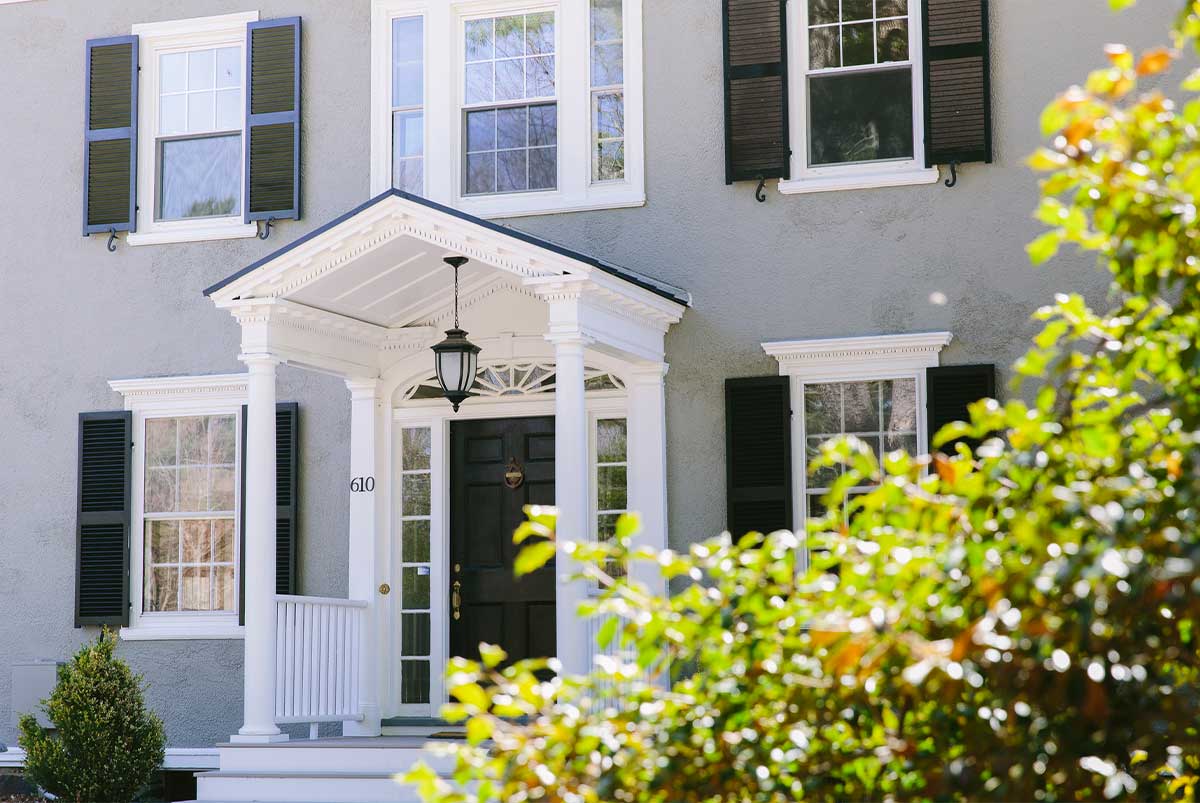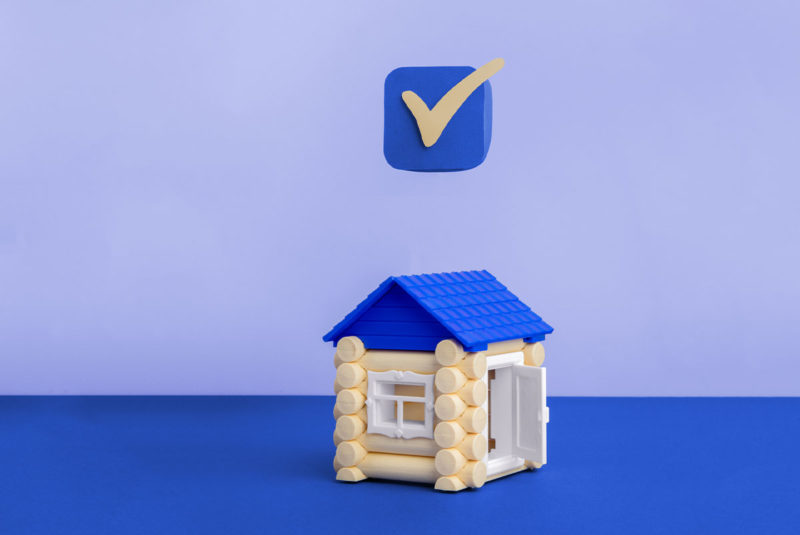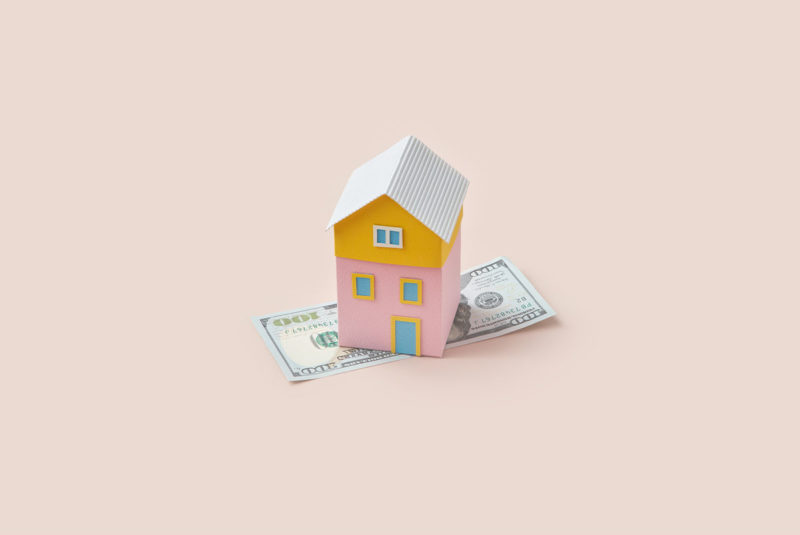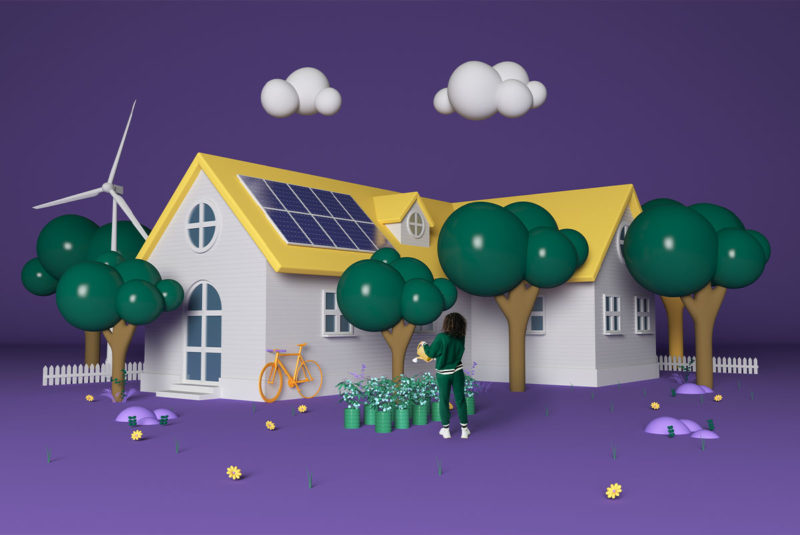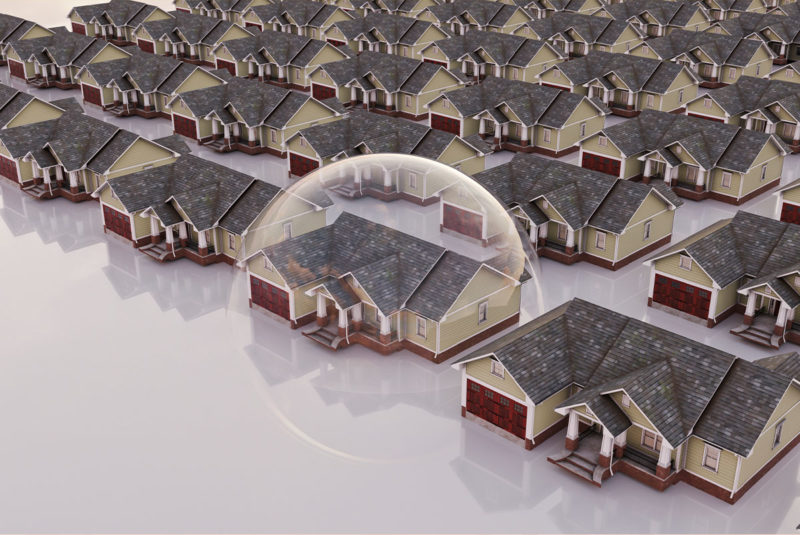Ready To Buy a Home?
Get Approved to Buy a Home
Rocket Mortgage® lets you get to house hunting sooner.
So, you’re ready to sell your home. You’ve made every mortgage payment on time (and in full), and you’ve taken care of your home. You’re ready to sell, pay off your existing mortgage and pocket the rest of the money as profit.
Before you start thinking about what you’ll do or buy with that extra cash, it’s important to keep in mind that, like buying a home, selling a home costs money. Typically, it costs around 10% of the home’s sales price.
The goal is to cover the cost of selling with the money you make off the sale. Knowing what expenses to expect can help you to manage them and hold on to as much of that profit as possible.
Real Estate Agent Commissions: 5% – 6% of the Home Sale Price
Your single biggest expense will likely be the commission you pay to your real estate agent and the buyer’s real estate agent. This usually equals 5% – 6% of the home sale price. Roughly 3% will go to each agent.
It might be tempting to try and save some money by listing your home as for sale by owner (FSBO). After all, 3% of the home sale price is $3,000 for every $100,000 of home.
Yes, real estate agents come with a price tag, but they can be well worth the investment.
Good agents bring expertise in listing, selling, pricing and negotiating. They can also come with a team of professionals who can help manage paperwork and any legal issues connected to the sale of your home.
Real estate agents can also offer access to resources like real estate listing sites, professional photographers or virtual-tour builders that can make your home an online scroll stopper. So, it may be worth it to pay the extra 3%.
Staging Your Home: $647 – $2,446
Before you can sell your home, you’ll have to attract buyers. Your home will need to stand out from the competition – and that’s where home staging comes in.
Whether it’s a job interview, first date or home sale: First impressions count. Maybe that’s why 47% of buyers’ agents in a study by the National Association of REALTORS® said that home staging affected most buyers’ view of a home.[1]
How much it will cost to stage your home will depend on the condition of your home, whether you currently live in it and how competitive the real estate market is. HomeAdvisor crunched the numbers and decided that staging can cost between $647 – $2,446 or an average of $1,533.[2]
While that may feel like a lot of money, consider this: If you were selling a home for $200,000 and staging improved the offer by as much as $10,000, wouldn’t that $1,533 look like a savvy investment?
Home staging has been shown to increase purchase offers by as much as 5%.[1]
If you’ve never staged a home before, here are some easy staging tips to get you started:
- Hire a professional cleaning service to clean your home
- Make interior improvements, like minor repairs, repainting walls or refinishing floors
- Consider landscape and exterior improvements that boost your curb appeal
- Hire a professional stager to declutter and decorate your home
- Rent furniture to give your home a “lived-in feel” if it’s empty
You can handle some of this on your own, but if you don’t have the time or the expertise, hire a professional.
Home Inspection and Repair: Based on Condition of Home
Let’s say you’ve got a potential buyer who makes an offer and even writes a check to cover the earnest money deposit or due diligence fees.
If that buyer (or their real estate agent) is smart, they’ll request a home inspection and usually add a home inspection contingency to the purchase agreement.
If the inspector finds minor problems with your home, the buyer may request that you fix them before closing or negotiate a lower sale price so they can make the repairs themselves.
If the inspection reveals larger problems, like structural or plumbing issues or termites, that may cost the buyer more than they can afford to repair. It may give the buyer a reason to back out of the sale and get their earnest money back – and you’d be back at square one.
If you anticipate potential problems cropping up, consider fixing them before you put your home on the market or be prepared to negotiate a lower sale price.
Seller Closing Costs: 1% – 3% of the Home Sale Price
Once you’ve negotiated a final sale price with the buyer and the buyer gets approved for a mortgage, you can close. While many closing costs are covered by the buyer, there are some closing costs sellers have to pay.
Closing fees
These fees can include notary fees, attorney fees, legal fees, fees paid to the title company and recording fees.
Seller concessions
If you’re trying to sell quickly or you’re trying to sell your home in a buyer’s market, the buyer may ask for seller concessions (think: you agree to pay part of the buyer’s closing costs).
No one wants to pay more than they have to, but there may be times when it’s worth it. Maybe you’ll get your home sold sooner, or the buyer ups their offer on the house because they’re paying less to purchase the house upfront.
Mortgage payoff
You’ll also have to pay off the remaining balance on your mortgage, pay off any outstanding home equity loans or home equity lines of credit (HELOCs) and cover any outstanding liens on your home.
What it costs to pay off your mortgage may be more than the balance on your mortgage statement because your lender may charge you to settle your interest. If your mortgage has a prepayment penalty clause, you might be on the hook for it, too.
HOA Fees and State and Local Taxes: Based on Area
When you sell your home, you may need to settle any outstanding charges if you belong to a homeowners association (HOA). Once you’ve done that, you’ll need to settle up with your local tax authorities at the city, county and state levels.
Transfer taxes
Depending on your location, you may be charged a special tax for transferring your property. Some areas charge nothing while others charge a flat fee. In some areas, the seller can be charged as much as 2% of the home sale price.
Property taxes
You’re responsible for paying your property taxes until the day you close and ownership of the home has been transferred to the buyer. If you’ve been making regular payments through your lender, you should be good.
However, if there isn’t enough in your escrow account to cover a prorated share of the property taxes, you’ll need to settle up with your local tax authority. But if you have more in escrow than you owe, you may get a refund from your lender after you close.
Capital Gains Tax: Based on Income and Profit From Sale
When it comes to taxes, this is the big one. A capital gains tax is paid based on the profit you make from the sale of the home. How much you owe is determined by subtracting the original purchase price of your home from the sales price of the home then multiplying it by the capital gains tax rate.
For you visual learners out there, it looks like this:
Capital gains tax = (home sale price – original purchase price) X capital gains tax rate
Home sale price and purchase price
The sale price and the purchase price of your home aren’t only based on the price at closing, you can add or subtract specific home-related expenses from the purchase and sale price, so you don’t have to pay as much in capital gains tax.[3]
These can include buyer and seller closing costs as well as any money spent improving the home.
Let’s say you buy a home for $300,000 and live in it for 5 years. If you sell it for $500,000, the taxable profit will be $200,000.
You can:
- Add buyer closing costs to the purchase price: $300,000 + 5% = $315,000
- Subtract seller closing costs from the sales price: $500,000 – 10% = $450,000
Now you only owe property taxes on $135,000.
If you made significant improvements that increased the sale price of your home, you can add that to the purchase price, too. If you spent $35,000 adding a new room to your home, you could end up owing $100,000 instead of $200,000.
Capital gains tax rate
Your capital gains tax rate will determine what you owe and how much you owe.
Your capital gains tax rate is the percentage of profit you owe in taxes. This can vary depending on how long you’ve owned the home, how long you’ve lived in the home and your taxable income. If you’re selling your primary residence and your taxable income is[4]:
- Less than $40,400 for a single filer or $80,800 for a married couple filing jointly, you’ll pay 0% in capital gains.
- More than $40,400 but less than $445,850 for a single filer or more than $80,800 but less than $501,600 for a married couple filing jointly, you’ll pay a 15% capital gains tax rate.
- Higher than $445,850 for a single filer or $501,600 for a married couple filing jointly, you’ll pay a 20% capital gains tax rate.
But there’s an exception to the rule. It’s called the exclusion-of-gain rule or 5-year test.[3]
The test is simple. If the home was your primary residence for at least 2 of the 5 years before you sold the home, you can exclude up to $250,000 (up to $500,000 if you’re married and filing jointly) of that gain from your profit.
Those 2 years don’t have to be consecutive. And you can only use the exception if you haven’t already sold a home using the exception within the last 2 years.
So, if you bought your house for $300,000 and lived in it for 2 out of 5 years and then sold it for $550,000, regardless of your income, you wouldn’t have to pay any capital gains taxes.
The Costs of Selling a Home: Final Thoughts
For many of us, buying and selling a home will be the single biggest financial transaction of our lives. That’s why it’s important to understand all the costs of selling a home before you start staging and listing.
Don’t get caught off guard by unexpected costs – especially when you’re getting ready to make such an important sale.
Looking to make a change?
Whether you want to buy a house, refinance or take cash out, you’re not alone. The experts are just a click away.
The Short Version
- While every home sale is different, selling a home typically costs around 10% of the home sale price, including taxes, fees and other expenses
- The real estate agent commission you pay to your agent and the buyer’s agent may be your largest single expense
- Depending on the original purchase price, the sale price and your current income, you might owe capital gains tax on your home
National Association of REALTORS®. “2021 Profile of Home Staging.” Retrieved November 2021 from https://cdn.nar.realtor/sites/default/files/documents/2021-profile-of-home-staging-report-04-06-2021.pdf
HomeAdvisor. “2021 Cost of Home Staging | Prices to Stage a House.” Retrieved November 2021 from https://www.homeadvisor.com/cost/home-design-and-decor/hire-a-decorator-for-staging-a-home/
Internal Revenue Service. “Publication 523 (2020), Selling Your Home.” Retrieved November 2021 from https://www.irs.gov/publications/p523
Internal Revenue Service. “Topic No. 409 Capital Gains and Losses.” Retrieved November 2021 from https://www.irs.gov/taxtopics/tc409
